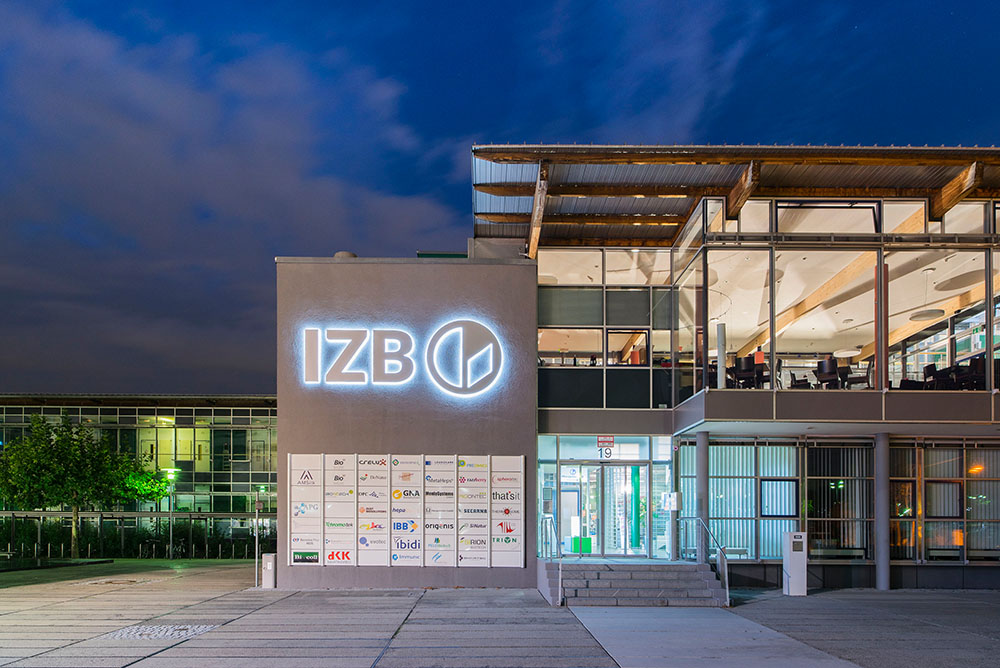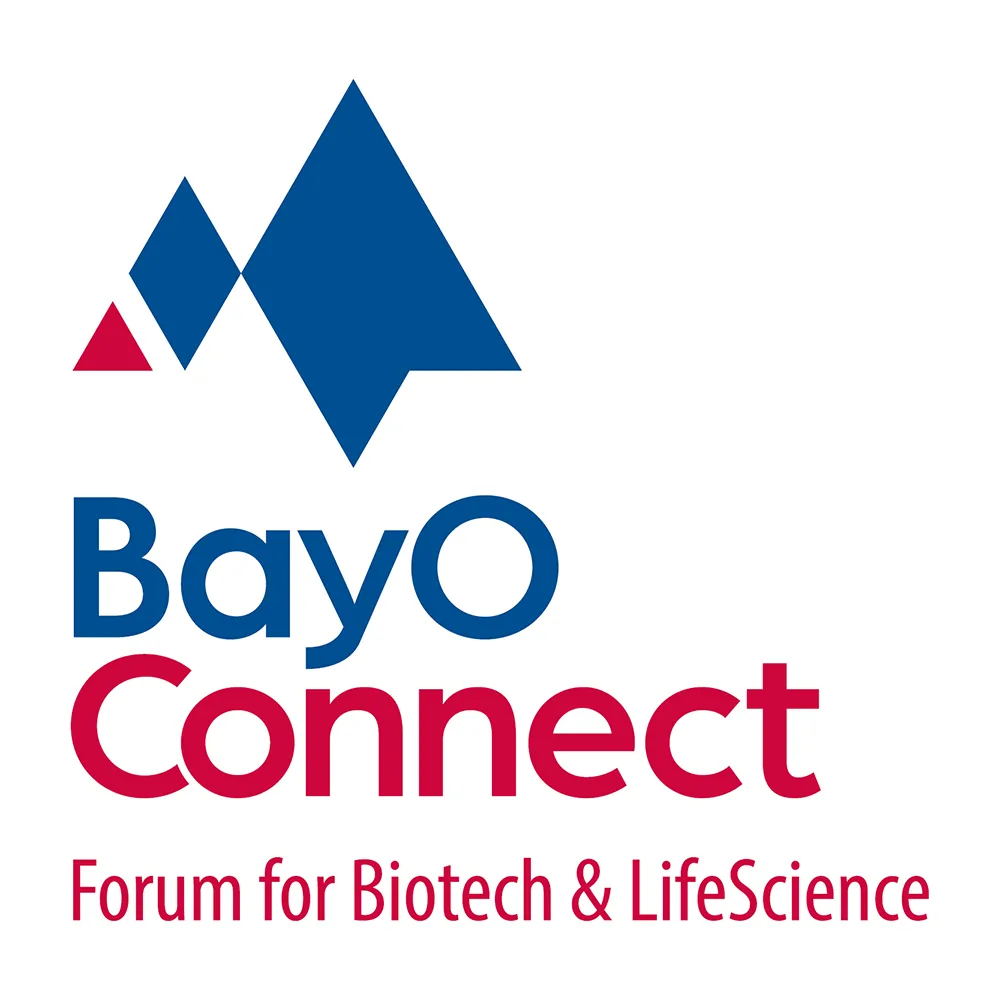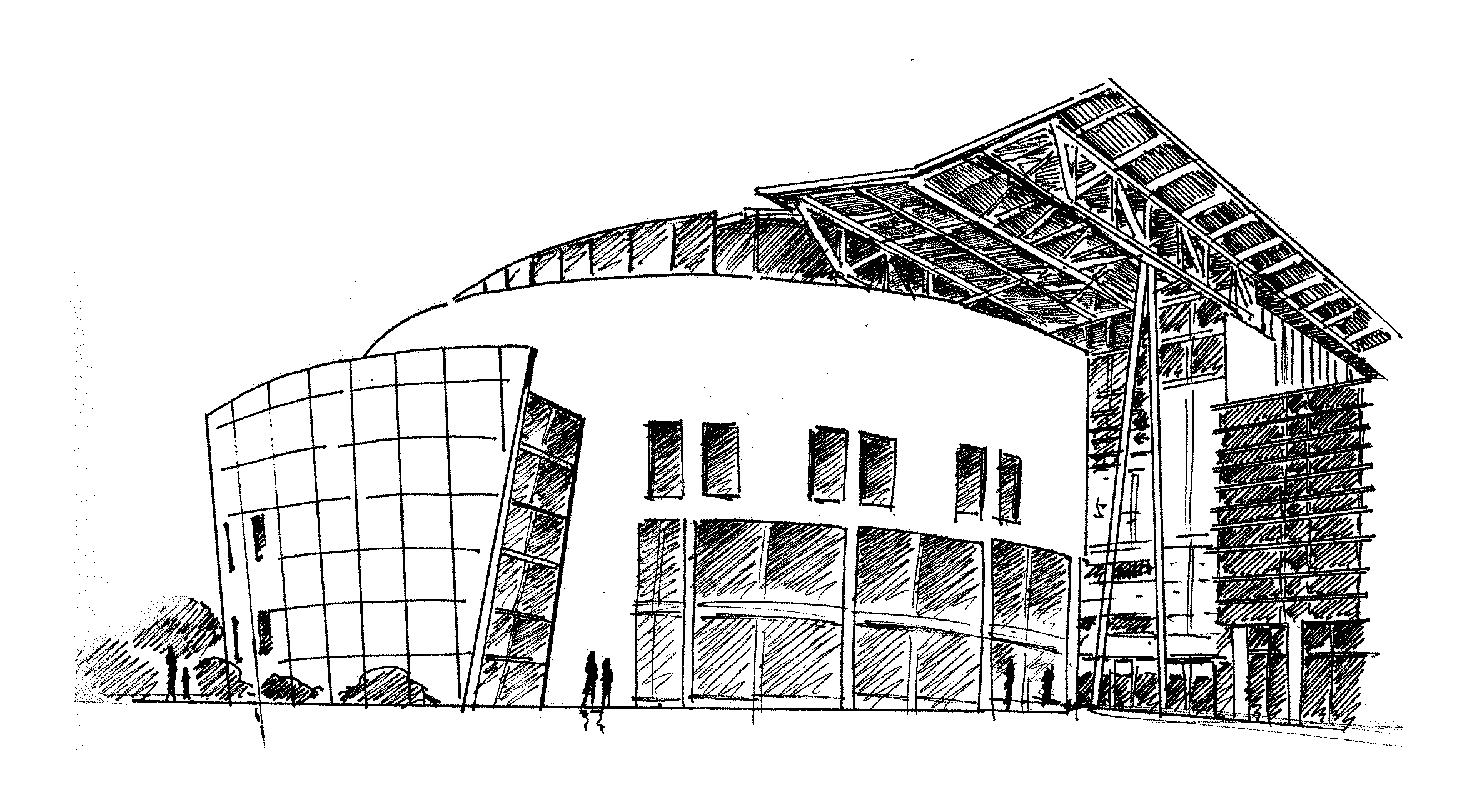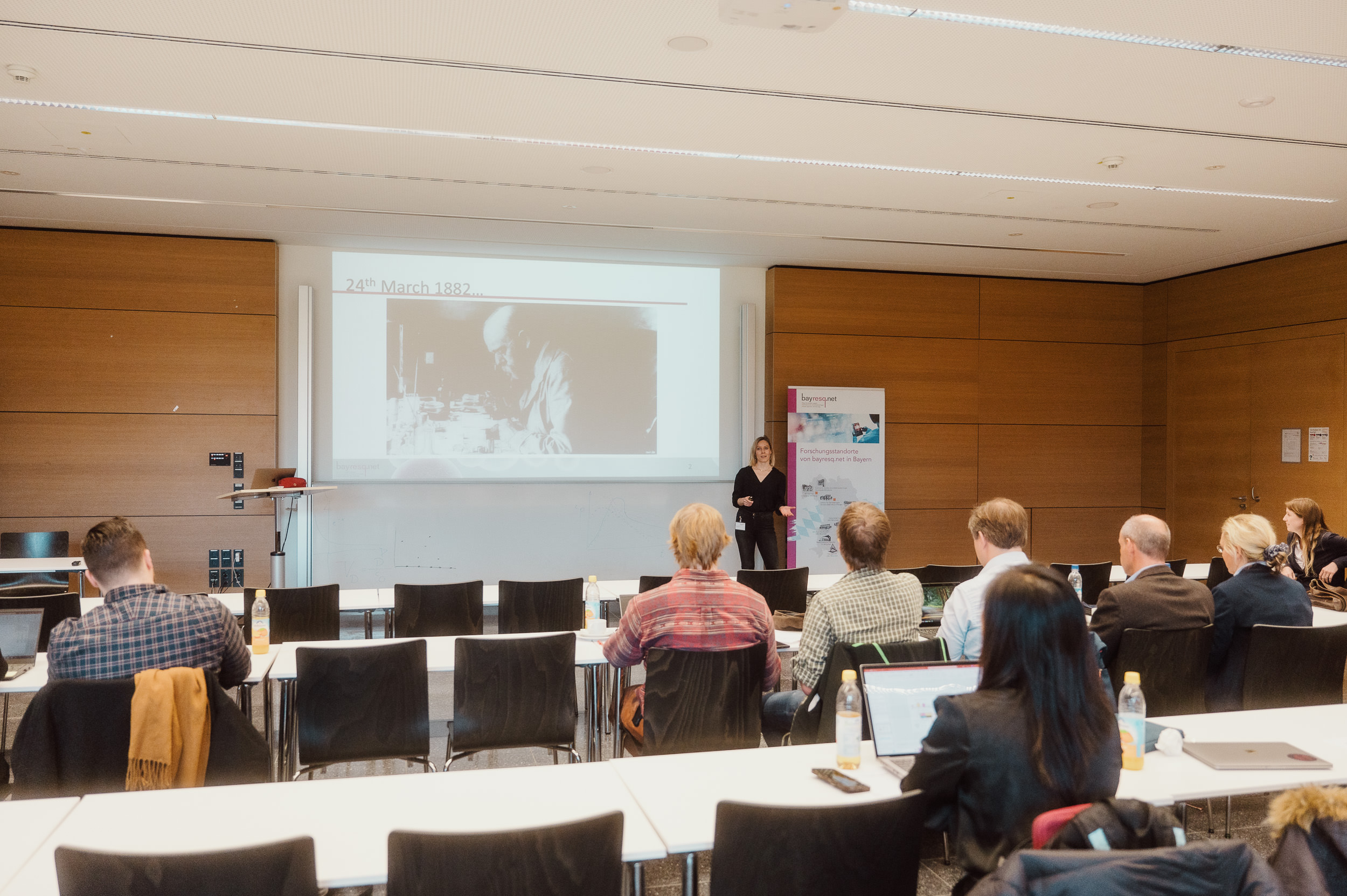The closing event of the Bavarian research network bayresq.net on November 20, 2025 at the IZB Martinsried marked a highlight in Bavarian AMR research. While millions of people worldwide die from infections against which antibiotics no longer work, six collaborative projects presented their scientific breakthroughs from six years of intensive research.
The results are impressive:
The network, funded by the Bavarian State Ministry of Science and the Arts, has sustainably transformed the research landscape: 91 scientific publications, 7 patent applications, 8 open-source software solutions, 20 completed doctorates, 3 professorial appointments and 20 awards for scientific excellence. More than 85 researchers from across Bavaria have taken new approaches in the projects DynamicKit, Helicopredict, IRIS, Metabodefense, Rbiotics and StressRegNet in the fight against multidrug-resistant pathogens.
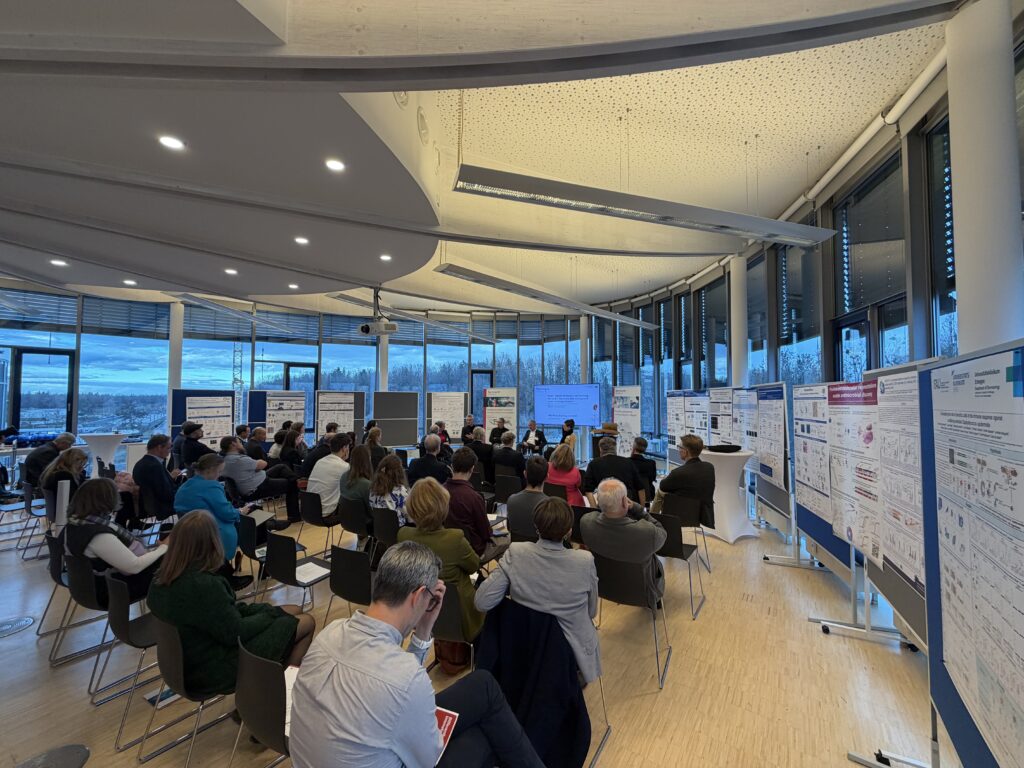
What drives science: The panel discussions
After keynotes by Prof. Dr. Lothar Wieler, former President of the Robert Koch Institute and now at the Hasso Plattner Institute, on the global threat posed by antibiotic resistance, and Prof. Dr. Gitta Kutyniok of LMU Munich on the impact of AI on research, two high-profile panels delivered substantial impulses for the future of AMR research.

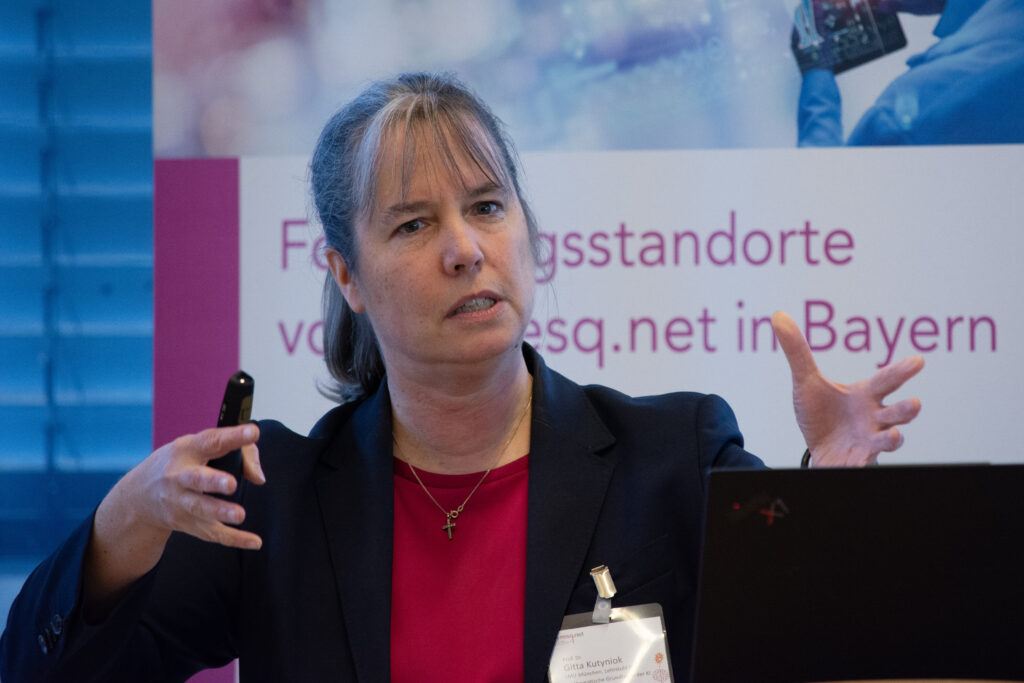
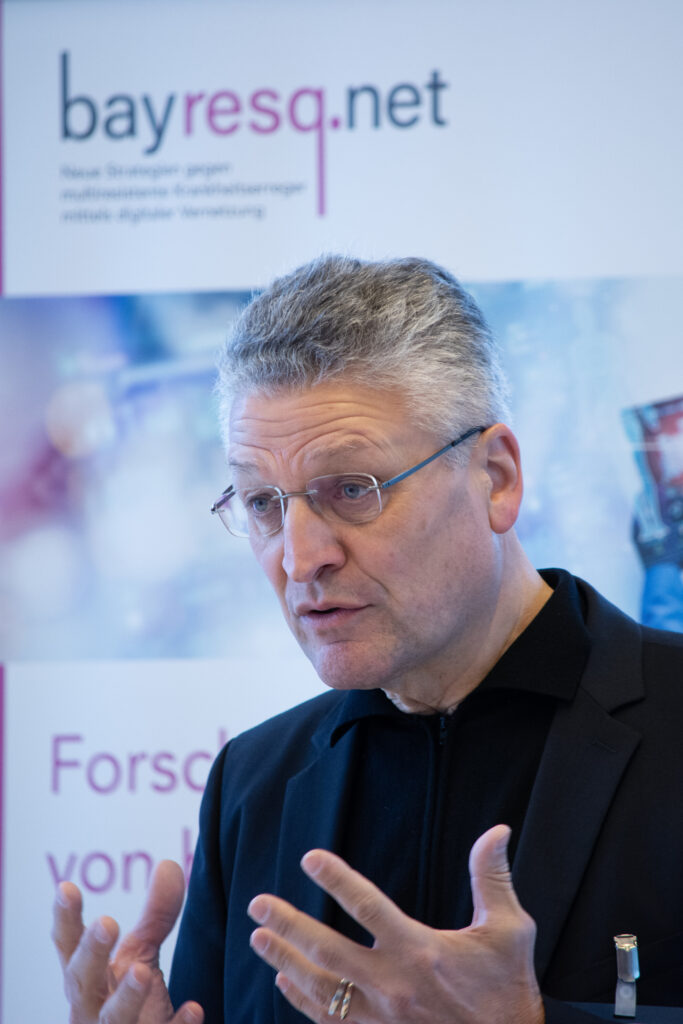
Panel I: Digital connectivity as a gamechanger
Moderated by Prof. Dr. Gitta Kutyniok, the discussion brought together Prof. Dr. Rolf Apweiler, Deputy Director General of EMBL-EBI, Prof. Dr. Frauke Kreuter from LMU Munich and the University of Maryland, Prof. Dr. Zlatko Trajanoski, Director of the Institute of Bioinformatics at the Medical University of Innsbruck, and Prof. Dr. Lothar Wieler to discuss the future of data access, data sharing, and AI in research.
Prof. Dr. Wieler called for a fundamental shift: a change in mindset is needed. His wish is that politics develop greater trust in citizens and researchers.
Prof. Dr. Apweiler advocated for European data sovereignty (in particular https://europepmc.org) and a balanced approach to data protection: although we live in the age of privacy, citizens have not only a right to data protection but also to the benefits that data use enables. Too often warnings are issued reflexively that something might be dangerous, instead of recognizing the opportunities. Data protection and societal benefits must be weighed carefully, as overly restrictive data protection often stands in the way of progress. A willingness to take risks opens opportunities.
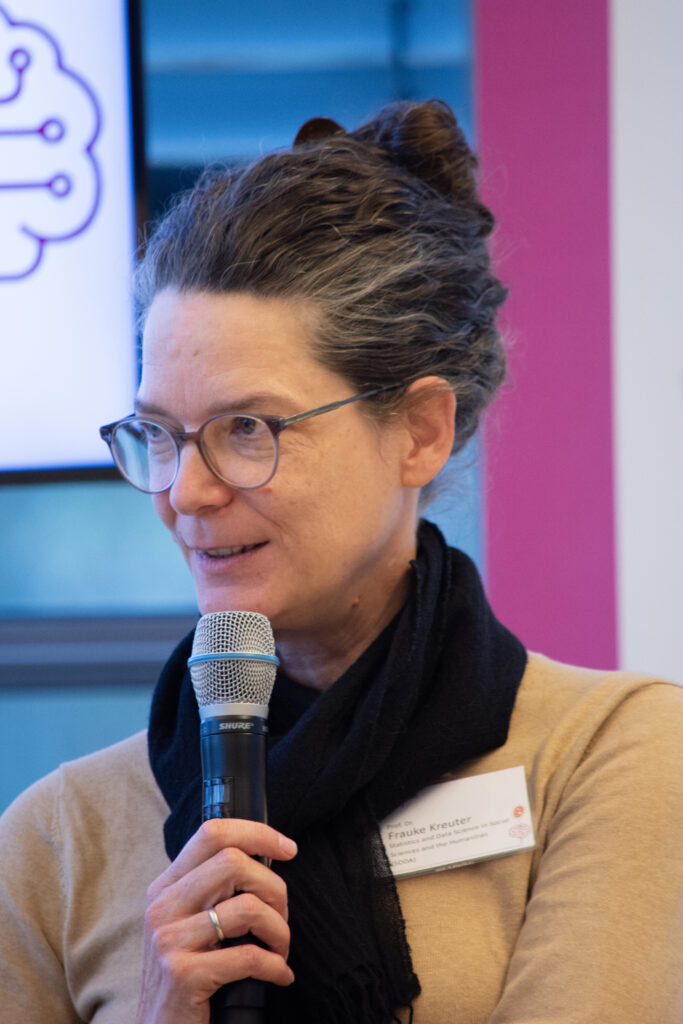
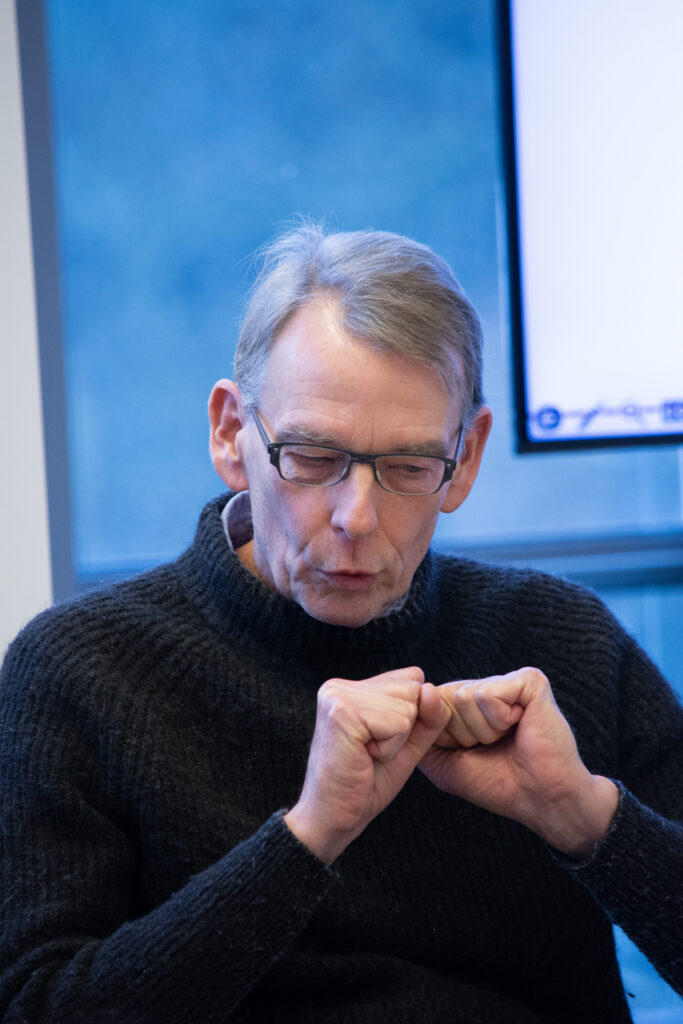
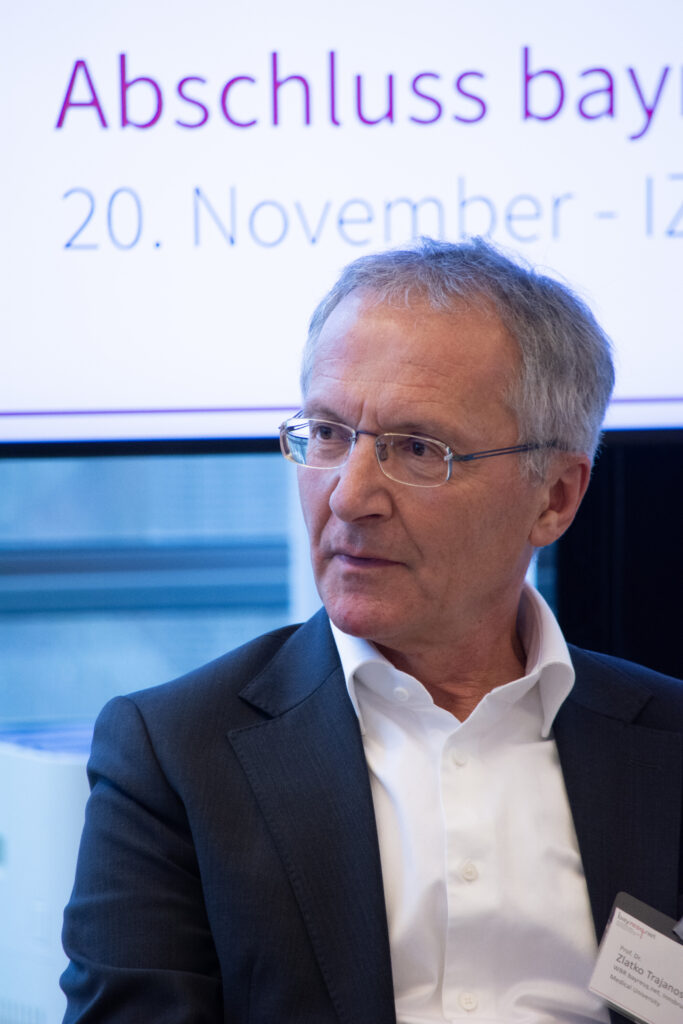
Prof. Dr. Kreuter appealed for constructive collaboration: networking and working together must be the guiding principle. The sociologist and statistician praised the bayresq.net network as a model. Her message to policymakers was clear: show more courage and confidence, send stronger signals of trust. Politics should understand responsibility as the pooling of competencies, not as a control instrument.
Prof. Dr. Trajanoski emphasized the importance of asking the right questions, alluding to Douglas Adams’ “The Hitchhiker’s Guide to the Galaxy”: AI will always deliver an answer (“42” to the question about “life, the universe and everything”), but what matters is asking the right and precise questions. More emphasis must be placed on meaningful AI applications in research rather than using AI for trivial purposes (“slop”). His message was particularly directed at young researchers to actively shape the future of science, and at policymakers to support and enable this motivation.
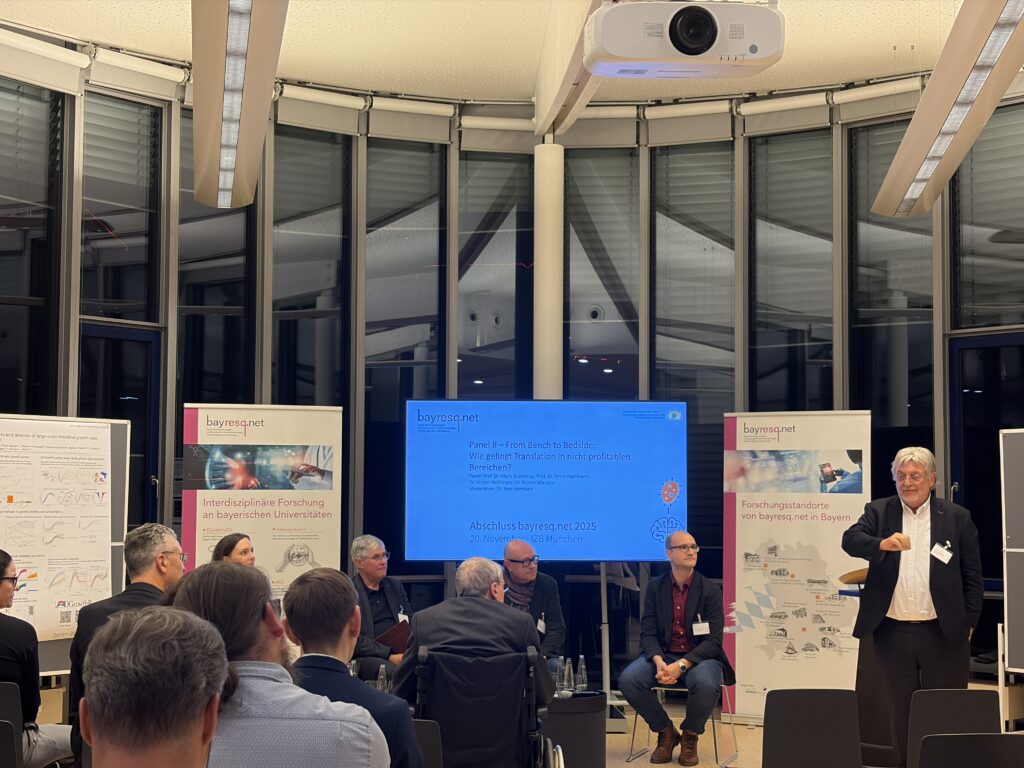
Panel II: Closing the translation gap
Dr. Rosi Hermann moderated an especially compelling discussion on how translation can succeed in initially non-profitable areas. Joining her were Prof. Dr. Mark Brönstrup from the Helmholtz Centre for Infection Research, Prof. Dr. Peter Hammann, formerly Sanofi, Dr. Holger Reithinger, Executive Director of CARB-X, and Dr. Robert Macsics, Head of R&D at GARDP.
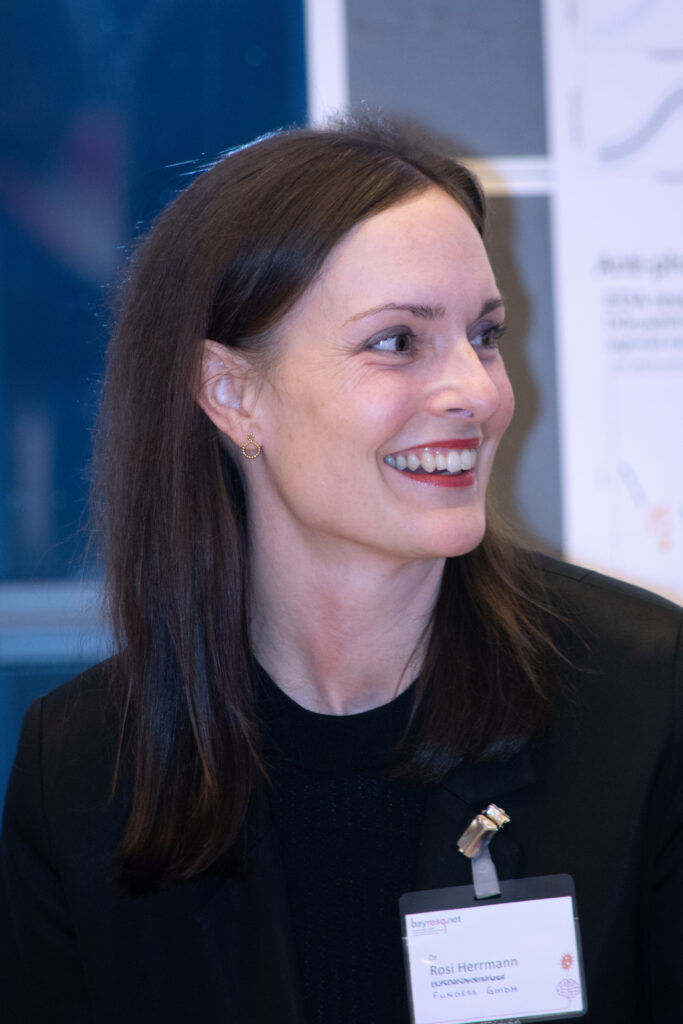
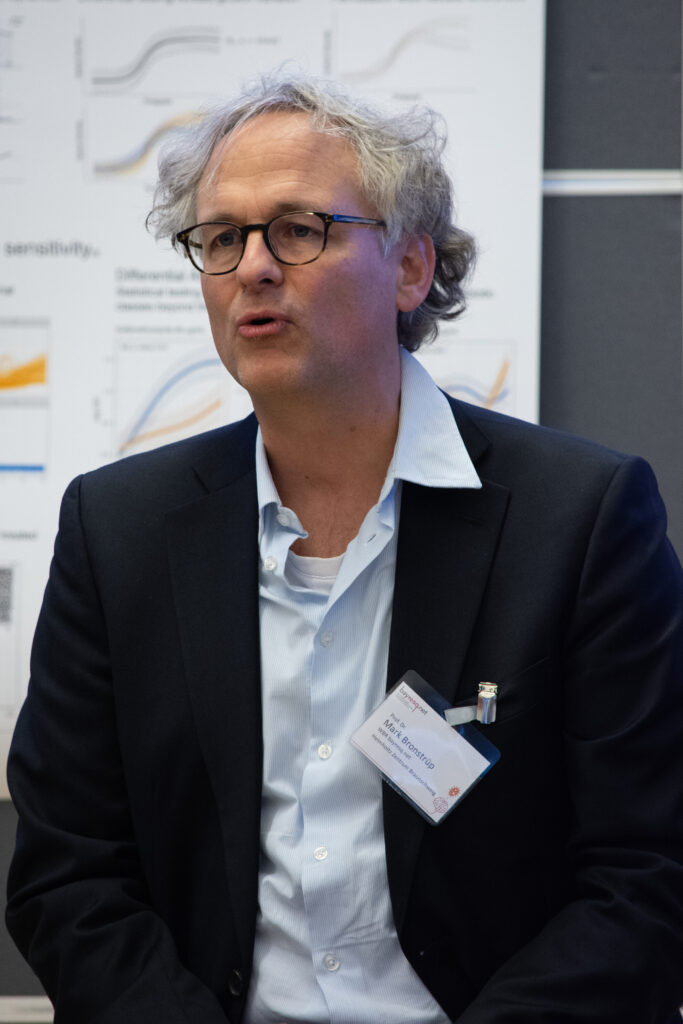

Prof. Dr. Hammann reminded the audience, from the perspective of “Big Pharma,” of creative financing models: the state could assume development risk, similar to the BAföG student loan system. In the case of commercial success, the investment would be repaid; in the case of failure, not—or only partially. Such mechanisms could promote the development of urgently needed antibiotics as well as other translational fields by lowering the barrier to entry into the startup world for qualified researchers and developers.
Prof. Dr. Brönstrup underlined the importance of stable basic research: yes, push funding is lacking, but without a solid scientific foundation, the push leads nowhere. Basic research is the prerequisite for any translational success.


Dr. Hermann summed up the central challenge: funding logic demands medium-term exploitation. This is difficult to reconcile with truly novel, high-risk innovations that require longer development cycles.
The panelists jointly called for a realignment of research funding: investments in innovation must be made and priorities set correctly, rather than simply following the current trend. The principle “today yes, tomorrow no” is problematic. Corona research is a sobering example: before 2019, hardly anyone wanted to fund it; afterward, it suddenly became highly relevant, and the foundations laid by earlier research proved maximally valuable and helpful. Research is needed even beyond the top priorities.
Both panels underscore that successful research (against multidrug-resistant pathogens) is based not only on technological and scientific progress, but also on political will, modern digital infrastructure, and reliable funding. The bayresq.net network addresses exactly these issues – and shows: the Free State of Bavaria remains a pioneer in top-level research and technology.
bayresq.net: Scientific breakthroughs
DynamicKit developed the first complete pipeline for analyzing intact proteins of Mycobacterium tuberculosis under antibiotic stress. Using MALDI-TOF, HPLC-MS and open-source software, protein changes can now be tracked in real time. This enables personalized therapies against multidrug-resistant tuberculosis. In simple terms: researchers can now observe in real time how tuberculosis bacteria respond to medications and identify the best treatment for each patient.
Helicopredict created the world’s largest database for Helicobacter pylori with more than 500 characterized clinical isolates. The AI models developed predict resistance to clarithromycin, levofloxacin, and metronidazole with precision. A web-based platform integrates clinical, genomic, and microbiological data for clinical application. In other words: artificial intelligence can now predict which antibiotics will work for which patient against this gastric pathogen.
IRIS identified CD86 on dendritic DC2 cells as an essential checkpoint for reactivating memory T-cell responses against Staphylococcus epidermidis. A surprising finding was that even commensal skin bacteria can trigger systemic immunosuppression through an interferon-gamma to nitric-oxide signaling pathway. This has far-reaching implications for vaccine development and tumor immunology. In short: researchers have found ways to activate the body’s own immune system specifically against resistant skin microbes and discovered that even harmless skin bacteria can dampen immune defenses.
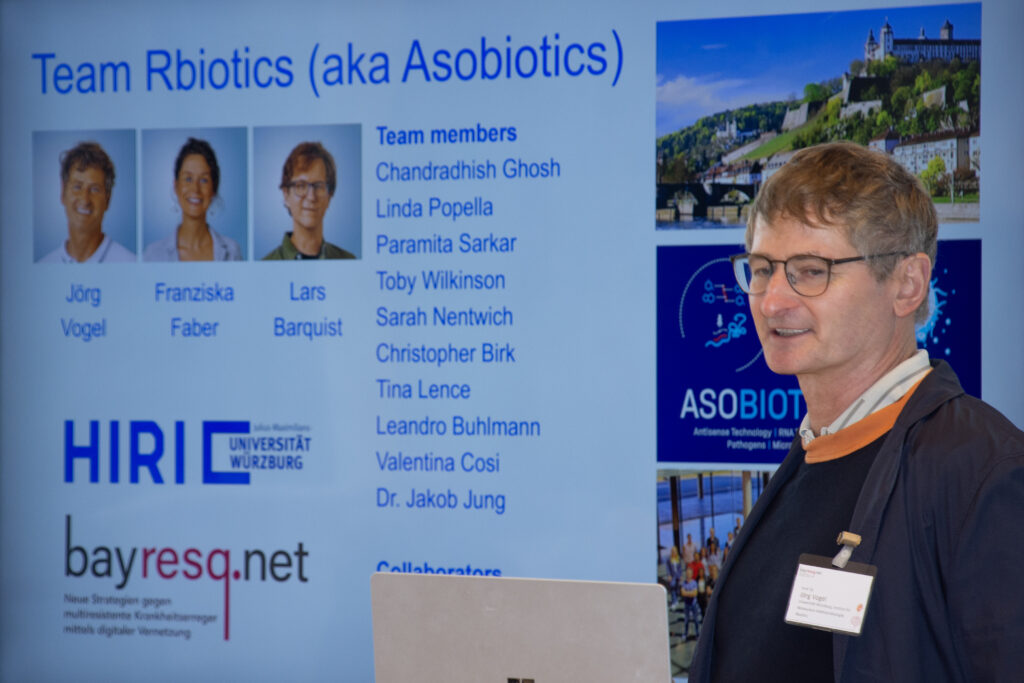
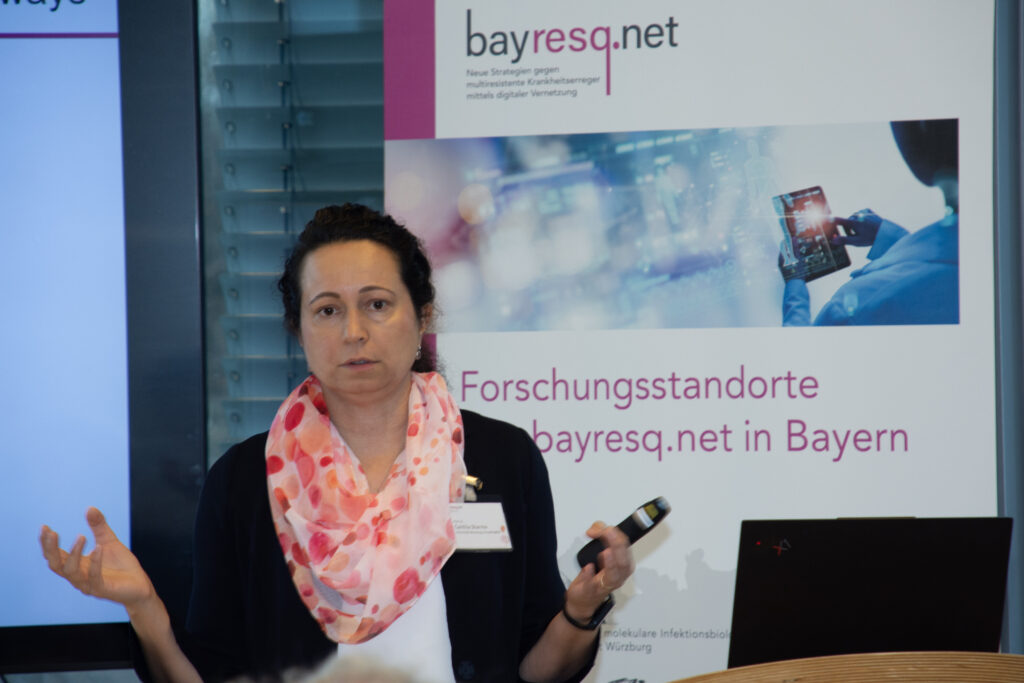
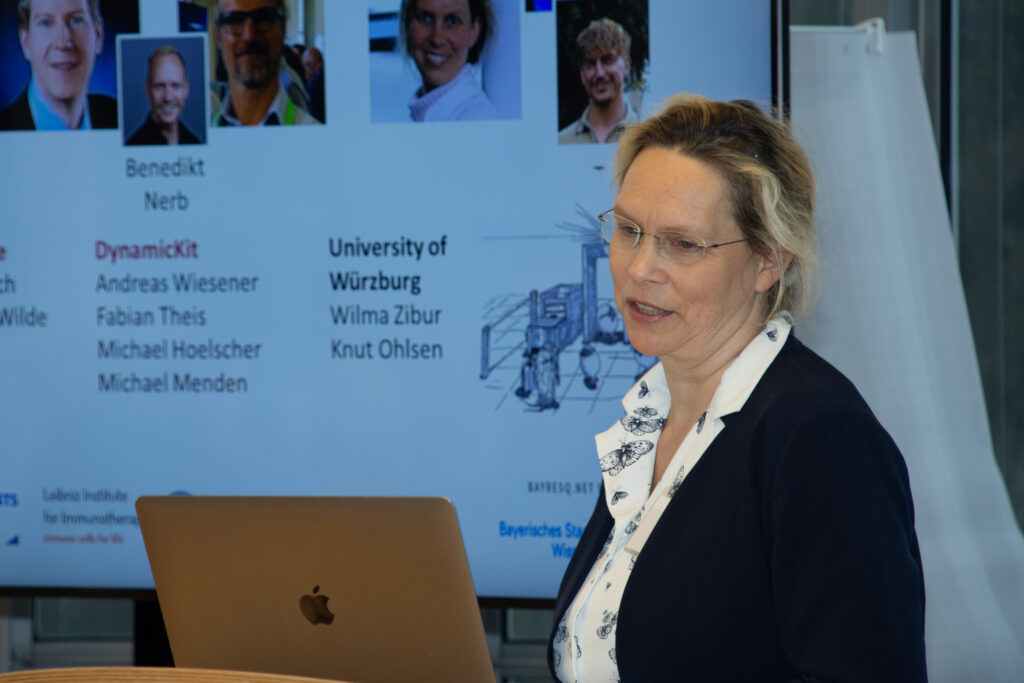
Metabodefense discovered two central metabolic axes: choline metabolism and neurotransmitter metabolism as therapeutic targets. Pharmacological inhibition of a neurotransmitter uptake system significantly improved defense against Salmonella. The MI4 signature developed enables, for the first time, precise differentiation between infected and uninfected cells—even across different pathogen types. This means: the metabolism of immune cells can be modified to help them fight bacteria more effectively, and a newly developed early-warning system can distinguish infected from healthy cells.
Rbiotics established an experimental pipeline for developing antisense oligomers as highly specific RNA-based antibiotics. With the publicly available MASON web server, researchers worldwide can design suitable ASO sequences. The technology enables targeted intervention against pathogenic bacteria without harming the protective microbiome. Put simply: these RNA medicines selectively eliminate only the harmful bacteria while leaving beneficial gut bacteria untouched.
StressRegNet analyzed more than 130,000 compound-pathogen interactions with Salmonella and Campylobacter. The project identified non-antibiotic compounds with selective antimicrobial activity and developed AI-driven tools such as DGrowthR and the deep-learning model MolE to predict antimicrobial activity of untested substances. Simply explained: after analyzing over 130,000 combinations, AI models can now predict which substances might be effective against resistant pathogens.
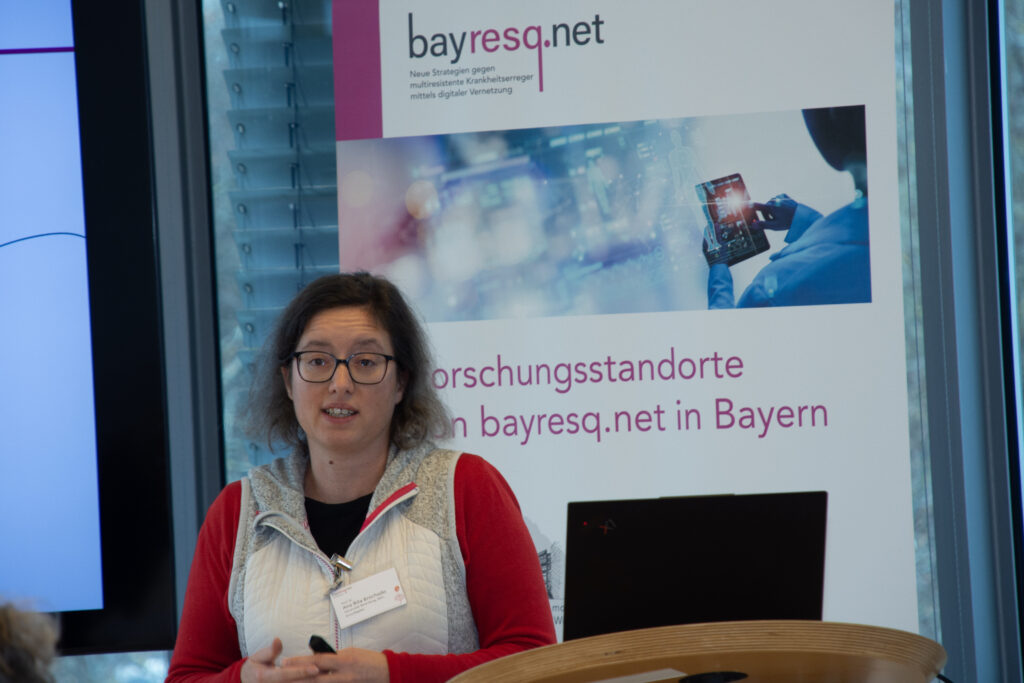

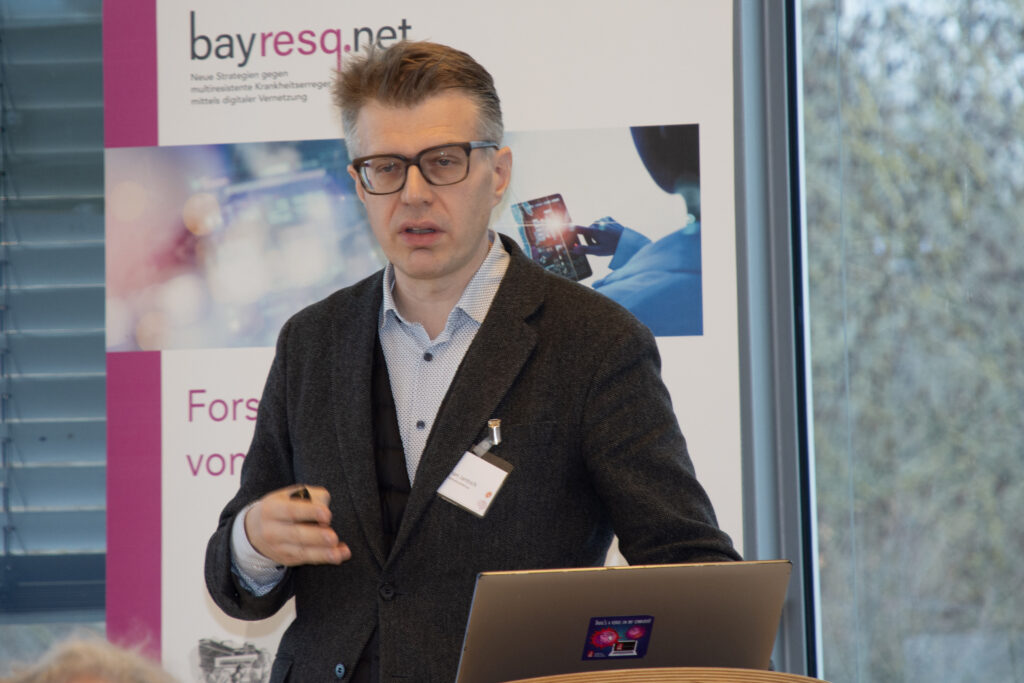
Scientific excellence is recognized:
The quality of the research is evident in numerous awards: Prof. Dr. Jörg Vogel is awarded the Bavarian Maximilian Order for Science and Art. Prof. Dr. Cynthia Sharma received the 2023 main prize of the German Society for Hygiene and Microbiology and the Max von Pettenkofer Prize in 2022. PD Dr. Katja Dettmer-Wilde was honored with the 2022 Gerhard Hesse Prize of the German Chemical Society. Prof. Dr. Fabian Theis received the 2021 Hamburg Science Award. Prof. Dr. Diana Dudziak received the Paul Langerhans Prize of the Working Group for Dermatological Research.
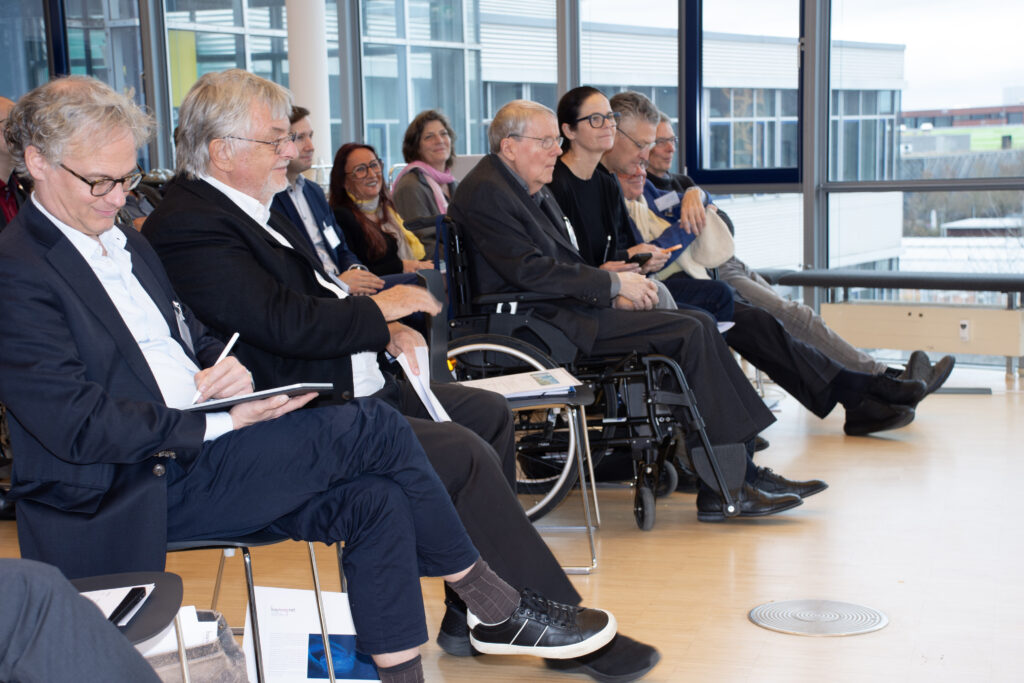
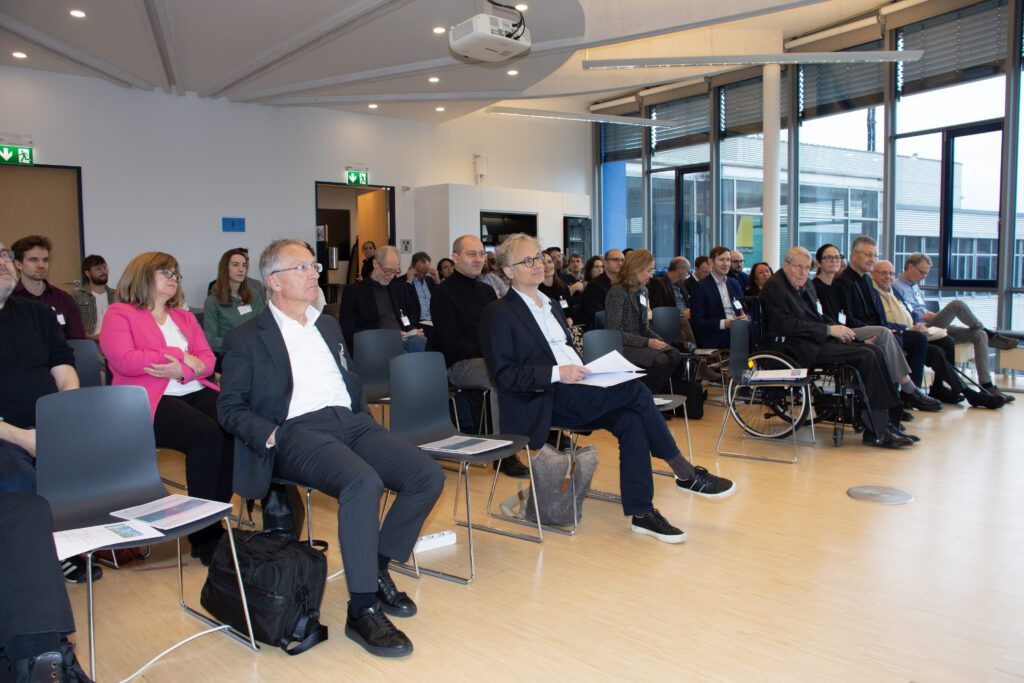
Acknowledgements and outlook:
The research teams and the coordination office thank the Bavarian State Ministry of Science and the Arts for its generous support. Special thanks go to Prof. Dr. Horst Domdey for the scientific leadership of the network and to Prof. Dr. Jörg Hacker, leader of the Scientific Advisory Board aswell as Vice Chair Prof. Dr. Tanja Schneider who all took the time to join.
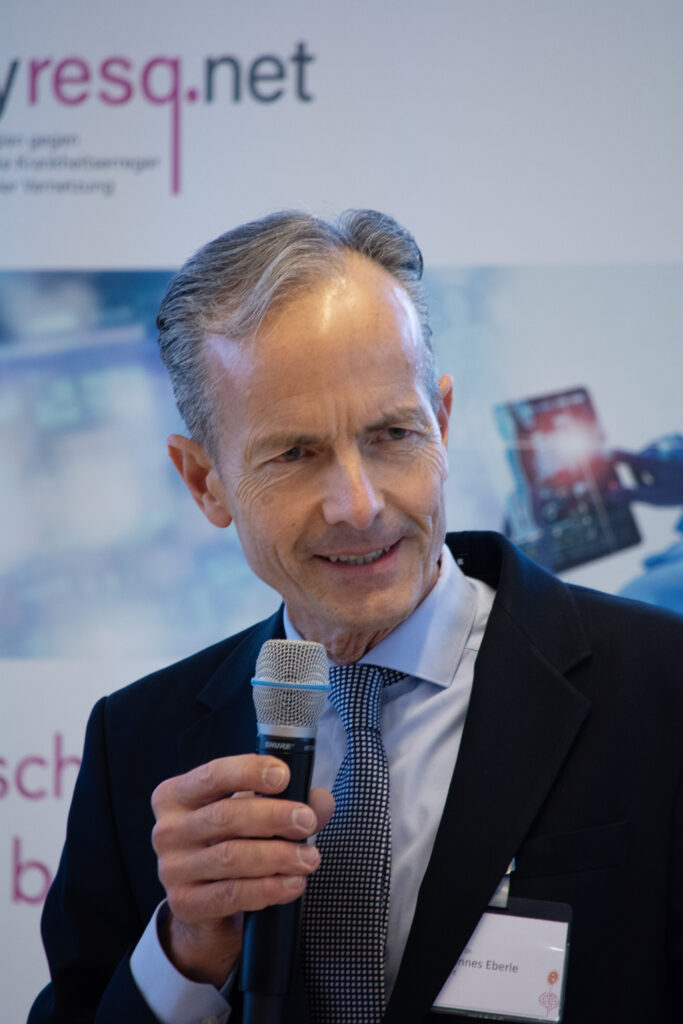
We thank all participating universities: LMU Munich, TU Munich, Julius-Maximilians-University Würzburg, University of Regensburg, Friedrich-Alexander-University Erlangen-Nuremberg and University of Augsburg, as well as the Leibniz Supercomputing Centre, the Gene Center Munich, and all cooperation partners.
Above all, we thank the more than 85 scientists and all former and temporary contributors whose expertise made this network a success.
AMR experts from across Germany agree: the question is not whether multidrug-resistant pathogens and research funding in general will remain important topics, but whether we can take the necessary steps in time and together to keep pace with the rest of the world in these crucial research fields.
With bayresq.net, Bavaria has already taken an important step for Germany’s—and Europe’s—research and innovation landscape.


